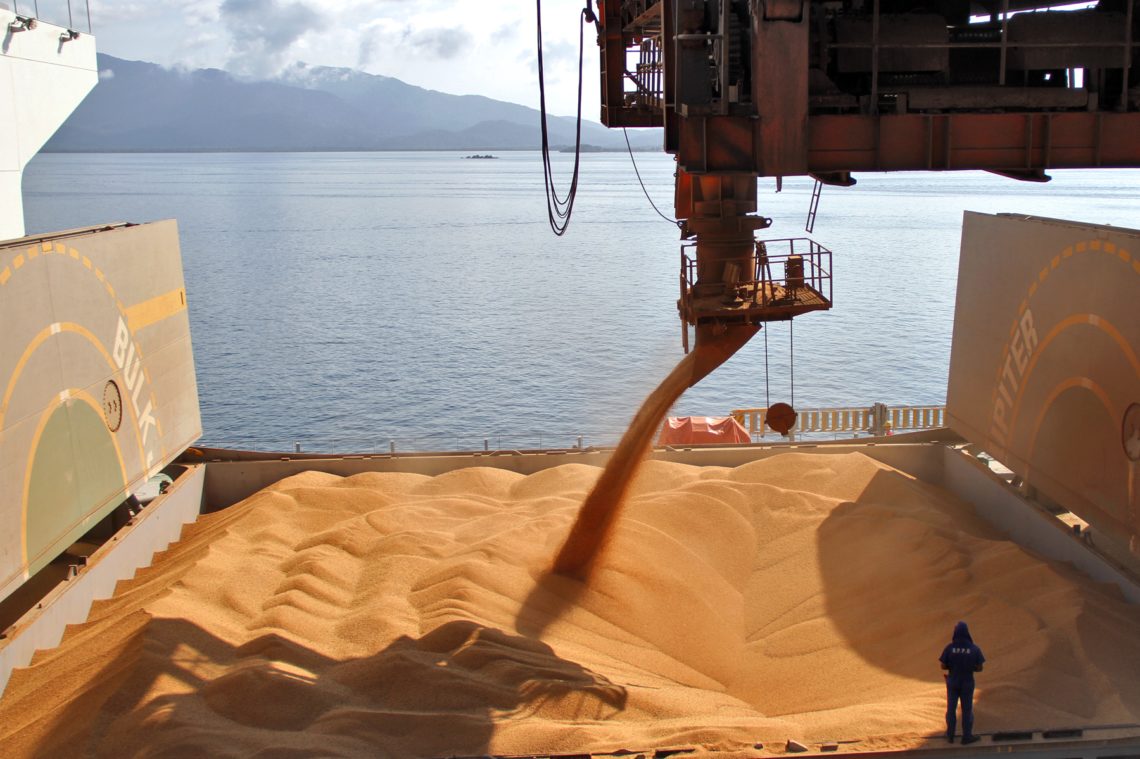UN aid chief calls for ‘critical’ continuation of Black Sea grain deal

The UN’s top aid chief has called for the “critical” continuation of a deal allowing Ukrainian grain exports to pass through the Black Sea, with Moscow threatening to exit the agreement later this week.
Under the July 2022 initiative, Ukraine is allowed to export grain and other agricultural products from three Black Sea ports, helping offset a food supply shock triggered by Russia’s invasion.
The deal is set to expire on Thursday. Russia has repeatedly threatened not to renew it, citing concerns that its own exports are being hampered.
“The continuation of the Black Sea initiative is critical, as is recommitment by the parties to its smooth and efficient operation,” Martin Griffiths, undersecretary general for humanitarian affairs, told a Security Council meeting on Ukraine on Monday.
The deal was extended in November for 120 days and then in March for 60 days.
Mr Griffiths called on all parties to meet their responsibilities and said “efforts” to extend the grain deal would continue “over the coming days”.
“In recent weeks, we have engaged in intensive discussions with the parties to the Black Sea initiative to secure agreement on its extension and the improvements needed for it to operate effectively and predictably,” Mr Griffiths said.
Russia, which has questioned the deal before, says it will not approve the agreement’s extension if its demands are not met by May 18.
“The Secretary General [Antonio Guterres] has no authority over Swift,” UN spokesman Stephane Dujarric said last week.
“He has no authority over member states that impose unilateral sanctions. He has no authority over insurance companies, shipping companies. He can’t tell them what to do.”
“Just under 600,000 metric tonnes of wheat [have been] transported by the World Food Programme, in direct support of humanitarian operations in Afghanistan, Ethiopia, Kenya, Somalia and Yemen,” the UN aid chief said.
Lana Nusseibeh, the UAE’s ambassador to the UN, highlighted the vital significance of the Black Sea grain deal.
She commended the “earnest efforts” of the UN and Turkey in enabling negotiations and reiterated a call for the full implementation of the agreement with regard to Russian fertilisers and food products.
While the practical benefits of the initiative are widely acknowledged, Ms Nusseibeh noted its potential as a trust-building mechanism.
“Reaching an agreement again on these initiatives and other successful negotiated outcomes such as exchanges of prisoners of war, demonstrate that there remains some degree of willingness to negotiate a pathway forward,” she said.
Russia’s UN ambassador Vasily Nebenzya accused the West of “cynicism” in its approach to food security.
In March, Moscow had already warned if there was no progress on the “systemic issues” blocking Russian agricultural supplies, the Kremlin could not guarantee that the deal would be extended.
Read also
December WASDE forecast values increased for oilseeds and oils for MY 2024/25
New palm oil standards raise deforestation concerns
Grains in the Green. Wednesday, December 11, 2024
Palm ends lower on profit-booking and tracking Dalian palm
EU Council approves farmer-focused future common agricultural policy
Write to us
Our manager will contact you soon



